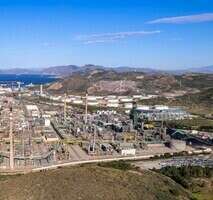- Repsol and Enagás Renovable are investing over €300 million in a 100 MW electrolyzer in Cartagena.
- The project will produce 15,000 tonnes of renewable hydrogen annually, reducing CO2 emissions by 167,000 tonnes.
- The European Commission and Spain recognize it as a strategic project, providing €155 million in funding.
- The plant is expected to be operational by 2029.

Project Overview
Repsol, in collaboration with Enagás Renovable, is set to construct a 100 MW electrolyzer in Cartagena, Spain, with an investment exceeding €300 million. This facility will produce approximately 15,000 tonnes of renewable hydrogen annually, significantly reducing CO2 emissions by up to 167,000 tonnes each year.
Strategic Importance
The European Commission and the Government of Spain have designated the Cartagena electrolyzer as a strategic project of common European interest (IPCEI). It will receive €155 million in funding through the Spanish Institute for the Diversification and Saving of Energy (IDAE).
Timeline and Impact
Scheduled to be operational by 2029, the project represents a technological challenge and a milestone for the Hydrogen Valley of the Region of Murcia. It aims to create an efficient ecosystem aligning production capacity with industrial needs.
Future Prospects
The project includes the potential for renewable hydrogen to be integrated into the natural gas network and the Spanish Hydrogen Backbone. Repsol, as Spain's leading hydrogen producer and consumer, currently produces around 360,000 tonnes of hydrogen annually at its industrial complexes.

